Finding Comfort Naturally with Home Remedies for Bloating
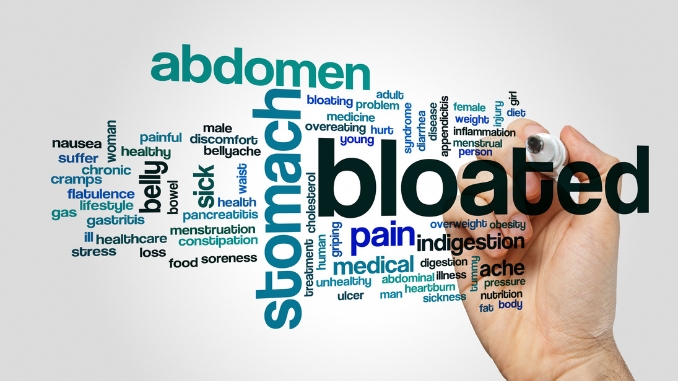
Last updated on April 11th, 2025 at 08:22 pm
“Home remedies are our best medicine, proving that healing often starts right in our own kitchens”
Looking into home remedies for bloating does more than just help ease discomfort; it gives people a way to take care of their health using natural methods. In this introduction, we'll explore both old and new ways to reduce bloating. This will be a helpful guide for anyone looking for easy and straightforward solutions to feel better.
What is a Bloated Stomach?
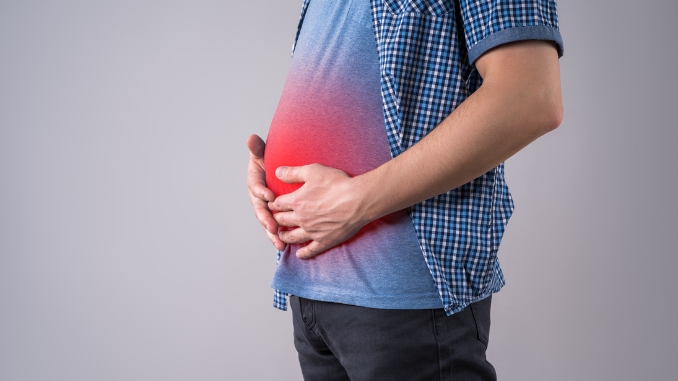
A bloated stomach feels tight and full, often due to issues in the digestive tract. This discomfort can be caused by irritable bowel syndrome (IBS), constipation, or food intolerances like lactose or gluten, which can trap gas in your intestines. Eating certain foods and drinking fizzy drinks can also lead to more gas. Sometimes, bloating is due to fluid retention from diet, hormonal changes, or health conditions like heart or liver problems, and it can also occur with serious issues like inflammatory bowel disease or cancer.
Moreover, a study in the American Gastroenterological Association journal says that bloating is a widespread issue[1]. About 18% of people feel bloated at least once a week. Older people tend to experience it less often. It's more usual in women and often comes with stomach or abdominal pain, too.
If you have IBS or ongoing digestive issues, see a doctor for the right treatment. If abdominal bloating also includes severe symptoms like quick weight loss or intense stomach pain, it’s crucial to get medical help to address any serious health concerns.
Symptoms of Bloated Abdomen
Bloating is a condition where the abdomen feels full and tight, often due to gas buildup in the stomach and intestines. The symptoms of bloating can vary from person to person but commonly include:
- Feeling of fullness or swelling in the abdomen: This is the primary symptom of bloating, where the abdomen feels uncomfortably full and tight.
- Visible enlargement of the abdomen: In some cases, bloating can also lead to an observable increase in the size of the abdomen.
- Abdominal discomfort or pain: Bloating can be accompanied by discomfort, which can range from mild and annoying to severe pain.
- Gas (flatulence): Excessive gas can accompany bloating, leading to frequent belching or passing gas.
- Rumbling or gurgling noises in the abdomen: These sounds are produced by the movement of gas through the intestines.
- Hardened abdomen: The abdomen may feel hard to the touch due to the pressure from gas buildup.
- Temporary relief after belching or passing gas: Releasing the gas can also provide temporary relief from the pressure and discomfort of bloating.
What Foods Make You Bloated?
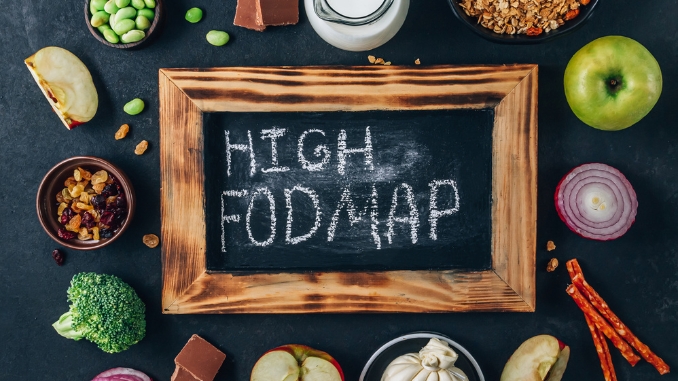
Here's a list of common foods and substances that are known to cause bloating in many people:
1. High-FODMAP Foods
FODMAPs are fermentable oligo-, di-, mono-saccharides and polyols, which are short-chain carbohydrates that some people find difficult to digest.
Vegetables like broccoli, cauliflower, cabbage, and also Brussels sprouts are high in fiber and a type of sugar that can be difficult for some people to digest, leading to bloating.
Foods high in FODMAPs can cause bloating, especially in individuals with irritable bowel syndrome (IBS).
Examples include:
- Wheat and rye products
- Onions and garlic
- Legumes (beans, lentils, chickpeas)
- Certain fruits (apples, pears, plums)
- Certain vegetables (asparagus, Brussels sprouts, cauliflower)
- Dairy products with lactose
2. Carbonated Drinks
Soda and other carbonated beverages contain gas that can get trapped in the digestive system, causing bloating.
A minor research featured in the Journal of Nutrition[2] discovered that drinks with fizz, because they contain carbon dioxide, can make the stomach expand. This enlargement might cause feelings of being bloated, sick, or overly full. So, drinks like sparkling water and soda can indeed make you feel bloated.
3. Dairy Products
For people with lactose intolerance, consuming dairy products can lead to bloating, gas, and other digestive issues because they lack the enzyme lactase, which is needed to digest lactose.
4. Artificial Sweeteners
Substances like sorbitol, mannitol, and xylitol, found in sugar-free gums and candies, can cause bloating and gas in the large and small intestine too.
5. Whole Grains
While whole grains are healthy, they are also high in fiber, which can cause bloating in individuals not used to a high-fiber diet.
6. Processed Foods
High-salt foods and foods that contain various additives and preservatives can cause water retention and bloating.
Drinks to Reduce Bloating
- Peppermint Tea: Known for its ability to relax the muscles of the GI system, helping gas to pass more easily and reducing bloating.
- Ginger Tea: Ginger has natural anti-inflammatory properties and can help soothe the digestive tract, aiding in the reduction of bloating.
- Lemon Water: Helps improve digestion and encourages the liver to produce bile, which is a fluid that aids in the digestion of fats.
- Chamomile Tea: This tea can reduce stomach cramps, ease gas pains, and help to reduce bloating due to its anti-inflammatory and antispasmodic properties.
- Fennel Seed Tea: Fennel has compounds that relax GI spasms, allowing gas to pass and relieving bloating.
Foods to Reduce Bloating
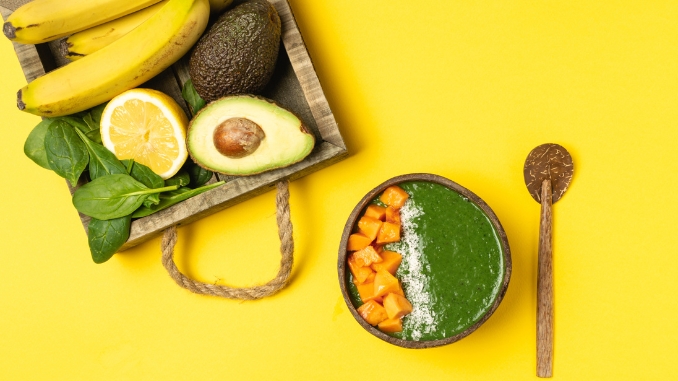
Based on the research, the idea was that eating prebiotics and probiotics[3] might reduce inflammation in the gut, which could lead to less bloating. Simply put, the theory suggested that eating more of these foods could help decrease bloating symptoms.
- Bananas: Rich in potassium, bananas can help regulate sodium levels and reduce water retention, minimizing bloating. (4)
- Yogurt with Probiotics: The probiotics in yogurt can help balance the gut microbiome, improving digestion and also reducing symptoms of bloating. Probiotics have been found to help reduce bloating effectively.
- Ginger: Incorporating ginger into your meals can help stimulate saliva, bile, and gastric enzymes, aiding in digestion and reducing bloating.
According to a 2023 study by Foshati et al., published in BMC Complementary Medicine and Therapies, ginger supplements significantly eased constipation, nausea, and bloating[4] in people with relapsing-remitting multiple sclerosis (RRMS).
Over 12 weeks, participants took either 500 mg of ginger or a placebo three times a day. Those who took ginger experienced notable improvements in their symptoms compared to those who took the placebo, suggesting that ginger could be effective for these issues. - Artichokes: It can be helpful for reducing bloating due to their high fiber content and natural properties that promote healthy digestion. They contain cynarine, a compound believed to stimulate bile production, which helps break down fats and also improve digestion.
Artichokes also have prebiotic properties, feeding the beneficial bacteria in your gut, which is essential for maintaining a balanced digestive system and reducing symptoms like bloating. Incorporating artichokes into your diet might help ease digestive discomfort and manage bloating effectively. - Kefir: This can be a great choice for managing bloating, especially because it's rich in probiotics. These beneficial bacteria help balance the gut microbiome, which can improve digestion and also reduce gas and bloating.
Kefir is also typically easier to digest than regular milk for those who are lactose intolerant, as the fermentation process breaks down much of the lactose found in milk. - Asparagus: Also a home remedies for bloating. Known for its diuretic properties, it can help reduce water retention and bloating.
Suggested Home Remedies for Bloating
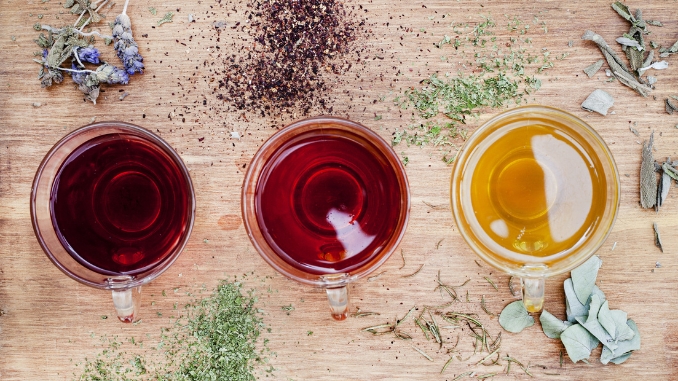
To relieve bloating and promote gut health, identifying and addressing the root cause is crucial. This may involve natural remedies and dietary adjustments aimed at reducing intake of gas-producing foods and enhancing digestion, as well as lifestyle modifications to encourage physical activity and proper hydration.
Bloating can be uncomfortable, but several home remedies can help alleviate the symptoms. Here are some suggestions:
1. Increase Fluid Intake
Drink plenty of water throughout the day, especially before meals. This can help improve digestion and prevent constipation, which is often a cause of bloating.
2. Reduce Salt Intake
High sodium intake can lead to water retention, contributing to bloating. Reducing your salt intake can also help minimize this.
3. Probiotics

Probiotics is also a home remedies for bloating. It can help balance the gut microbiota, improving digestion and reducing symptoms of bloating. They can be found in fermented foods like yogurt, kefir, sauerkraut, and kimchi, or taken as supplements.
4. Exercise Regularly
Physical activity can help stimulate the passage of intestinal gas, through the digestive tract and reduce bloating.
5. Limit Carbonated Beverages
Carbonated drinks can introduce excess gas into the stomach acid digestive system. Opt for still water or herbal teas instead.
6. Avoid Foods Know to Cauces Bloating
Try to identify and avoid foods that trigger your bloating. A low FODMAP diet can be a guide on which foods to eat though it may not eliminate all digestive problems, but chances are high that it may lead to significant improvements. And keeping a food diary can also help you track which foods might be problematic.
7. Eat Smaller, More Frequent Meals
Eating large meals can overwhelm your digestive system. Smaller, more frequent meals can also help alleviate pressure on the digestive tract.
8. Practice Mindful Eating
Eating slowly and chewing your food thoroughly can also reduce the amount of air you swallow and help prevent bloating.
9. Fennel Seeds
Fennel seeds have compounds that can relax gastrointestinal spasms and relieve bloating. You can chew on a half teaspoon of fennel seeds after meals or steep them in hot water to make tea. Herbalists say that fennel seed is good for digestion[5]. It also helps relax the smooth muscles in the gastrointestinal system, which can reduce gas, bloating, and stomach cramps.
Conclusion
In conclusion, home remedies for bloating offer simple and effective ways to find comfort. By incorporating these easy solutions into your daily routine, you can alleviate discomfort naturally. Whether it's sipping on soothing teas, making mindful food choices, or trying relaxation techniques, these home remedies empower you to take control of bloating. Remember, small changes can lead to significant relief.
From now on, you no longer have to live with the dire consequences of poor digestion. You can finally obtain “gut health security” and enjoy your favorite foods, symptom-free all day long! So check out this 14-Day Digestive Health Quick Start Program now!
Frequently Asked Questions
1. Does stress cause bloating?
Yes, stress can cause bloating. When you're stressed, your body reacts in ways that can slow down your digestion. This means food stays in your stomach longer, leading to gas and bloating. Also, stress can make you breathe faster, causing you to swallow more air, which can also make your belly feel bloated. Additionally, when people are stressed, they might eat more or choose foods that aren't easy to digest, which can add to the problem. So, feeling relaxed and managing stress can help keep bloating away.
2. Does green tea help bloating?
Green tea might help with bloating for some people. It contains compounds that could help reduce feelings of fullness and discomfort. Drinking green tea may also assist in easing water retention and gas, which can make you feel lighter. It’s a gentle option that could help soothe your empty stomach and possibly make you feel less bloated.
3. Does lemon water reduce bloating?
Lemon water may also help with bloating. It supports digestion because lemon juice can assist in breaking down food more efficiently, potentially easing the feeling of fullness. Furthermore, lemon water might increase urine production, helping to reduce water retention that can contribute to bloating. Drinking lemon water is also a straightforward and healthy option to help soothe your stomach.
Rick Kaselj MS, is a leading kinesiologist and injury specialist as well as co-creator of the best-selling Unlock Your Hip Flexors program. Rick creates exercise programs that help people heal injuries and eliminate pain, so they can go back to living a full, active, healthy life.






